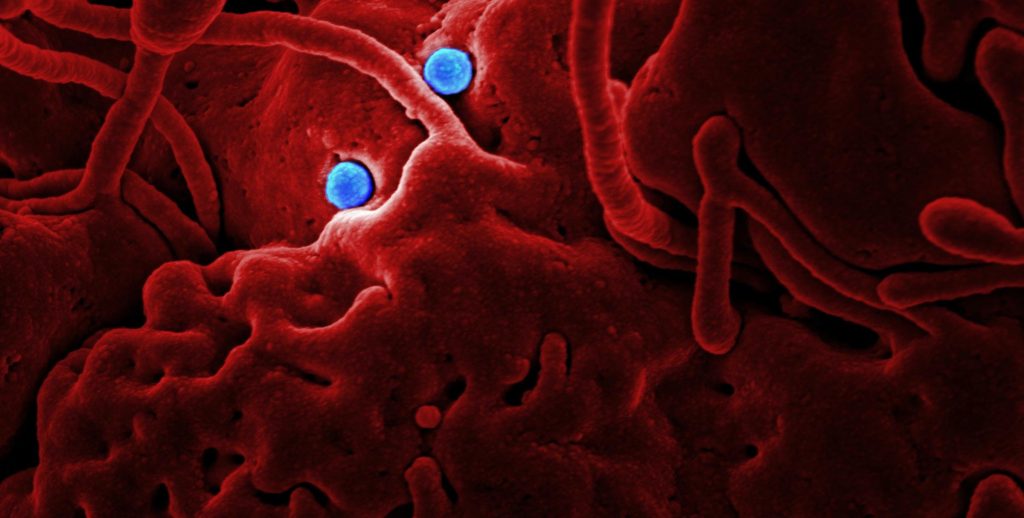Is Gonorrhoea viral or bacterial?
The idea of having a sexually transmitted infection (STIs) can be distressing, especially if you don’t know much about the infection in question.
In this blog post, we’ll be addressing one of the most common questions people have Googled about STIs: is Gonorrhoea a viral or bacterial infection? Understanding the nature of the infection and how it works is vital for securing your sexual health.

Gonorrhoea: the basics
Gonorrhoea, also known as “the clap”, is a sexually transmitted infection that affects millions of people worldwide. It is crucial to know that Gonorrhoea is, in fact, a bacterial STI. The bacterium responsible for causing this infection is Neisseria gonorrhoeae.
During a Gonorrhoea infection, Neisseria gonorrhoeae bacteria infect the urethra, causing inflammation.
Bacterial vs. viral STIs
Before diving deeper into Gonorrhoea’s bacterial nature, let’s briefly differentiate between bacterial and viral STIs.
Bacterial STIs
Various types of bacteria cause these infections. They can be cured with antibiotics when diagnosed and treated promptly. Gonorrhoea falls into this category.
Viral STIs
In contrast, viral STIs are caused by viruses like HIV, Herpes, and HPV. While there may be medications to manage the symptoms, most viral STIs cannot be completely cured. They require long-term management and monitoring.
Gonorrhoea as a bacterial STI
Now that we’ve clarified that Gonorrhoea is bacterial, let’s talk more about the infection itself.
Symptoms
Gonorrhoea can manifest with a wide range of symptoms, including painful urination, genital discharge, and pain during sexual intercourse. However, the infection can also present with no symptoms at all. This variability in symptoms is one reason why regular testing is so crucial.
Transmission
Like most STIs, Gonorrhoea is primarily transmitted through sexual contact, whether vaginal, anal, or oral, or through sharing sex toys. It’s highly contagious, and you can get infected even if your partner doesn’t display any symptoms.
Complications
If you leave a Gonorrhoea infection untreated, there can be many negative health consequences. Women can develop Pelvic Inflammatory Disease (PID), which can lead to infertility and potentially fatal ectopic pregnancy. If the woman is pregnant, she can be at risk of miscarriage, infection of the amniotic sac, and preterm birth. The bacteria can also transfer to the unborn child during pregnancy or labour, which can lead to conjunctivitis and blindness in the baby.
Men who have an untreated Gonorrhoea infection are at a higher risk of developing prostate cancer.
Untreated Gonorrhoea infections can lead to an increased risk of contracting other STIs like HIV.
Treatment and prevention
The good news is that Gonorrhoea, being a bacterial STI, can be treated and cured with antibiotics. This underscores the importance of early diagnosis and prompt treatment.
Prevention is equally vital.
Safe sex
Practising safe sex by using condoms and dental dams can significantly reduce the risk of Gonorrhoea transmission.
Regular testing
If you’re sexually active, consider regular STI testing as a part of your healthcare routine. Early detection allows for swift treatment, protecting both your health and your partners’ health.
Communication
Open and honest communication with your sexual partners about your sexual health and past STIs is crucial. Remember, discussing these topics fosters trust and responsible behaviour.
Final thoughts
Understanding the nature of Gonorrhoea as a bacterial STI is the first step towards taking control of your sexual health. While the thought of an STI can be unsettling, it’s important to remember that Gonorrhoea is treatable, and there is a wealth of resources available to help you through the process.
If you think you’ve been exposed to an STI, you should get tested with Better2Know. Call the number above to speak to one of our Sexual Health Advisors.
Categories
- Awards
- Bacterial Vaginosis
- Blood Tests
- Cardiovascular Health
- Cervical Cancer
- Chlamydia
- Condoms
- Covid-19
- Gardnerella
- Genital Warts
- Gonorrhoea
- Health and Wellness
- Hepatitis A
- Hepatitis B
- Hepatitis C
- Herpes
- HIV
- HIV (AIDS)
- Home Testing
- HPV
- Instant Testing
- MSM
- Mycoplasma
- News
- Non-Specific Urethritis
- PAP Smear
- Pre-Pregnancy
- Sexual Health
- STD Symptoms
- STD Tests and Screens
- STI Transmission
- Stigma
- STIs
- Swab Tests
- Syphilis
- Trichomonas
- Ureaplasma
- WSW
- Zika
